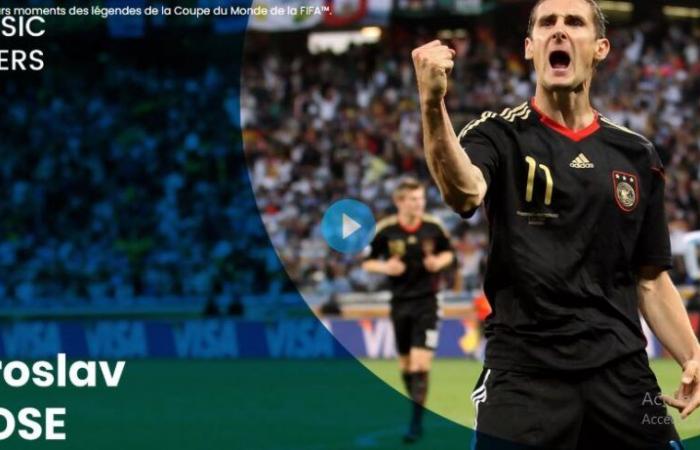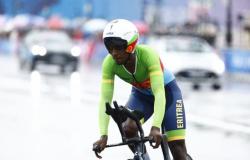Every week, FIFA shines the spotlight on a new FIFA World Cup™ record. Today we are looking at the famous German striker who became the top scorer in the history of the competition.
It was certainly one of the most surreal scores in FIFA World Cup™ history. Germany’s 7-1 victory over hosts Brazil in the 2014 semi-final left spectators at the Mineirão de Belo Horizonte in a daze, somewhere between amazement and despair.
The image of the scoreboard will make headlines around the world – as will the performance of a formidable German center forward, who became the top scorer in the history of the World Cup at the expense of… a football legend Brazilian.
Miroslav Klose had equaled Ronaldo earlier in the competition, scoring his 15th World Cup goal in a group draw against Ghana (2-2).
In the 23rd minute of the match, and despite his 36 years at the time, the Lazio striker demonstrated that he remains an outstanding finisher. In two stages, he scored the second German goal from close range, after having first come up against the Auriverde goalkeeper Júlio César. Klose is then alone in the world.
Twelve years earlier, at the 2002 FIFA World Cup Korea/Japan™, the Opole, Poland native had brilliantly launched his World Cup career with another offensive festival of Mannschaft. For Germany’s debut in Sapporo, Japan, he scored three headed goals during the demonstration against Saudi Arabia (8-0).
He will score two more goals in this edition, at the end of which he and his team will suffer the law of Ronaldo’s Brazil in the final. Four years later, Klose confirmed his ability to shine on big occasions, this time in front of his home crowd at Germany 2006.
He launched his campaign by scoring a brace in the opening match against Costa Rica, won 4-2 by his team. With five goals on the clock, he will be rewarded with the adidas Golden Boot of the event and Germany will finish third.
At 32, Klose returned for South Africa 2010. He scored again in Germany’s opening campaign, this time against Australia in Durban (4-0).
At this stage of his career, Klose is one of the leaders of an impressive Germany team that offers spectacular, attacking football. His efficiency in front of goal helped lead his team to a new third place, after scoring against England in the round of 16 (4-1) and scoring a double against Argentina in the quarterfinals (4-0). *
In 2014, the Mannschaft arrived in Brazil with a bloated workforce. Manuel Neuer, Philipp Lahm, Toni Kroos, Mesut Özil, Thomas Müller and others were at the top of their art. Within this armada, Klose then appears as an insatiable veteran, eyeing Ronaldo’s record.
Having entered the legend with his 14th and 15th goals, Klose will, as usual, demonstrate great modesty when receiving the shower of praise saluting his achievement.
“I have to thank my teammates, without whom none of this would have been possible,” he said after the semi-final. “Scoring 16 goals in the World Cup is more of a dream than reality. I don’t see myself as an icon, but it’s definitely an incredible accomplishment. »
Five days later, Klose will lift the trophy with his teammates at the end of a thrilling final against Argentina, won 1-0 after extra time. He would retire from international duty soon after, his name forever etched in World Cup legend.
1. Miroslav Klose (Germany): 16 goals
2. Ronaldo (Brazil): 15 goals
3. Gerd Müller (West Germany): 14 goals
4=. Just Fontaine (France) : 13 buts
4=. Lionel Messi (Argentine) : 13 buts
6=. Kylian Mbappé (France): 12 goals
6=. Pelé (Brazil): 12 goals
8=. Jürgen Klinsmann (West Germany/Germany): 11 goals
8=. Sándor Kocsis (Hungary): 11 goals
10=. Gabriel Batistuta (Argentina): 10 goals
10=. Teófilo Cubillas (Pérou) : 10 buts
10=. Grzegorz Lato (Pologne): 10 boots
10=. Gary Lineker (England): 10 goals
10=. Thomas Müller (Germany): 10 goals
10=. Helmut Rahn (West Germany): 10 goals






